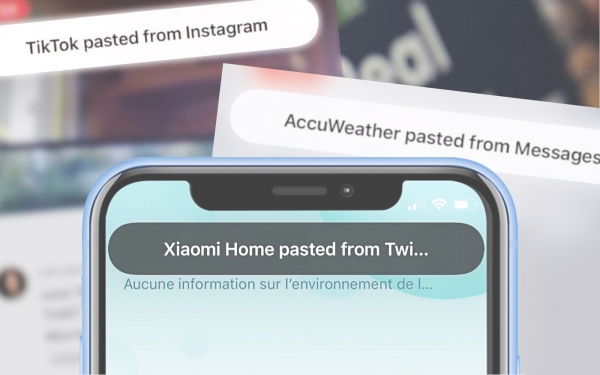
With the introduction of new privacy measures in iOS 14 Beta that warns users when apps try to track location or personal data, dozens of popular apps have been caught snooping on the user’s clipboard with no clear reason. The popular app TikTok, for example, has been storing this data every time the user types something. While TikTok did announce that this was merely an “anti-spam feature” and will be removed from the app, this entire issue raises multiple concerns: what information have companies taken from us? What about Android or other operating systems? Who is there to trust?
About Clipboard Access
The clipboard is where “copy and paste” data is stored. This can include ID and passwords, bank account or credit card details, and other personal or sensitive data. While some apps do make use of this data to enhance user experience, such as monitoring for a specific URL format or a phone number and responding to it, many apps that have been caught have no apparent reason to include this feature. They did not notify the user, nor included in their privacy policy why the app needs to access or use the clipboard. This is truly concerning as an anonymous developer even exposed a method that a fintech company used to build credit ratings from personal information stored in the clipboard. No one knows for sure how deep the rabbit hole goes.
For now, detecting unauthorized access to the clipboard is not available in operating systems other than iOS 14. While TikTok and many others have denied that they access the clipboard in Android, trusting them is up to the user. It is crucial that security features like this be implemented in all devices in the near future.
Debunking Apps for a More Private World
Whether a company actually steals user information or not, it is always good practice to find flaws and criticize the lack of security features in any programs that people use online. For example, Zoom, the video conferencing program that saw popularity in recent months, has kept updating its security features as many users criticized it for routing data to Beijing servers and using a non-standard encryption method that could possibly be decrypted. While many countries still do not trust Zoom, it is undeniable that Zoom has become more secure and reliable.
Developers and white hat hackers around the world are incessantly trying to find bugs, security flaws, or even data thefts in every software. Clipboard snooping is just one example. Every finding contributes to improved personal security, and as a result, the betterment of society.
“I Don’t Care” Attitude?
Convenience over security is one of the main reasons that people simply do not care whether their information is stolen or not. Some people go as far as saying that their personal information holds no real value. While it is true that most users will probably not experience any change in their personal life even if their data is stolen, serious crimes, such as account hacking, scamming, voice phishing, blackmailing, and even death threats, do happen more often than people think. Therefore, it is advised that everyone respect security guidelines, keep updated with the latest security news, and use all online services with caution.


